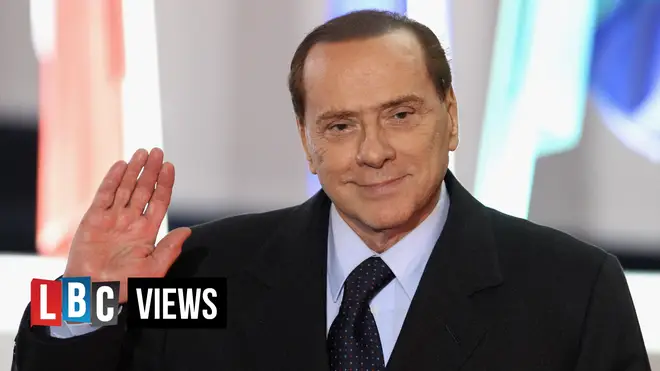
Henry Riley 4am - 7am
12 June 2023, 14:15

Silvio Berlusconi has died aged 86, marking the end of an era. For more than two decades, Italian politics revolved around this divisive figure: a former media tycoon who founded a new party in 1994 and won three general elections.
‘Berlusconismo’ completely redefined the Italian political landscape, becoming a stable category of party competition in a fragmented and volatile system. From 1994 to 2013, electoral campaigns were dominated by the conflict between supporters and opponents of Berlusconi, overshadowing traditional socio-economic struggles between left and right.
Initially, Berlusconi embodied the Italian anomaly: a mature democracy where the old political establishment had collapsed due to scandals and an ‘anti-elite’ protest wave.
He effectively led this wave and can be regarded as one of the ‘proto-populist’ leaders in contemporary Western politics. Presenting himself as a different kind of leader—a self-made man and successful entrepreneur—he portrayed professional politicians as disconnected from ordinary people, accusing them of never having worked in their lives.
Berlusconi demonstrated remarkable political survival skills, weathering crises, defeats, and scandals. In doing so, he challenged the general assumption that populism is a temporary phenomenon destined to disappear after a period of turbulence.
Instead, the former Italian Prime Minister exemplifies the ‘chameleonic’ nature of populism, its resilience, and its ability to adapt to changing circumstances.
Berlusconi began as a ‘neo-liberal’ populist advocating for the retrenchment of the state and a market-based, low-tax transformation of the Italian economic system. However, he soon embraced anti-immigration and law-and-order themes.
Even after his conviction for tax fraud and expulsion from parliament in 2013, Berlusconi continued to play a pivotal role on the right side of the political spectrum. Although his support declined in favour of new, younger, and more radical populist leaders, his role as a mediator between different right-wing factions remained crucial.
Giorgia Meloni, the current far-right Prime Minister of Italy, not only represents a long post-fascist tradition but was also a close ally of Berlusconi during his peak of power, having served as a minister in his last government.
Her current majority relies on the support of the small group of MPs still loyal to his politics.
The entire Italian right owes much to Berlusconi, his communication repertoire, and his leadership style. Even the centre and left have been influenced by the Berlusconi legacy.
For instance, former centre-left leader and Prime Minister Matteo Renzi was often accused of imitating Berlusconi’s rhetoric against the old political elite, a charge he never fully denied. More recently, Renzi has aligned himself even more closely with Berlusconi’s positions.
In some ways, Berlusconi occupies a role similar to Margaret Thatcher in the 1990s. Even after her demise, Thatcher’s political legacy survived and influenced the entire British political spectrum.
However, unlike Thatcher, Berlusconi’s impact on Italian politics has primarily been ‘stylistic’, as many of his substantial policy promises were never truly implemented.

Former Italian leader Silvio Berlusconi dies aged 86
Beyond Italy, Berlusconi’s persona no longer symbolizes Italian exceptionalism. Recent developments indicate that his political rise foreshadowed the emergence of populism and populist leaders across Europe and the West.
Boris Johnson and Donald Trump, for instance, have often been compared to him. Despite their belonging to socio-economic elites, they managed to present themselves as representatives of less privileged groups and made significant inroads in working-class heartlands.
Their resilience and ability to reinvent themselves suggest that populist figures like Berlusconi can be temporarily defeated but have the capacity to bounce back.
Even in death, their ideas, style, and character may leave an indelible mark, ensuring their legacy will endure and shape the course of politics for generations to come.
Dr Davide Vampa, is a Senior Lecturer in Politics at Aston University